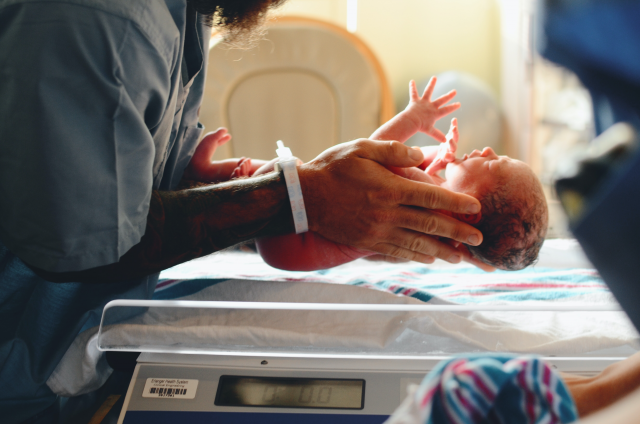By Melissa Meehan and Matt Hewson
Staff shortages throughout Greater Geelong are putting maternity services under pressure.
The closure of maternity services at Epworth Geelong in March this year brought the number of services in the regional centre down from three to two.
At the time, Epworth cited staffing shortages as a major reason for the closure.
The Royal Australian and New Zealand College of Obstetricians and Gynaecologists said services in the Greater Geelong region hadn’t kept pace with an increasing population since the closure.
“Services have not kept pace with increasing population, and many women have more complex needs than in the past,” a spokesperson told AAP.
“The main issue has been a physical lack of beds and space, and workforce issues.”
Berth Geelong, which provides pregnancy care, recently sent an email to clients warning of the situation at St John of God Geelong.
“Due to a shortage of paediatrician cover, the hospital may go on bypass,” the email said.
“Be assured the bypass is not related to midwifery care or due to hospital capacity but rather a challenge in providing adequate paediatric support.”
National Association of Specialist Obstetricians and Gynaecologists president Gino Pecoraro said it was an all-too-familiar story, as regional centres across the country struggled to find staff.
“We are in the process of maternity services collapse around the country – it’s not a polite way to put it, but it’s true,” Prof Pecoraro said.
“This is exactly what happened with Queensland, with Gladstone, then Rockhampton and now Cairns – and regional New South Wales is no different.”
Mr Pecoraro said when private healthcare became unaffordable, fewer women used the private sector, putting pressure on public hospitals and making it harder to entice obstetricians, paediatricians and other specialists.
St John of God chief executive Stephen Roberts dismissed the notion of a crisis in Greater Geelong, saying he was extremely proud of how his staff had responded in the past six months.
“Essentially, it was a doubling in volume in a very short period of time, but we’ve been able to absorb all of the work that’s come out of Epworth so far and we’ve delivered every baby that has been booked with us,” Mr Roberts said.
“No woman has been transferred from here to deliver elsewhere.
“In that time we were on bypass for a total of six hours during those many months.”
Barwon Health women’s and children’s services clinical director, Associate Professor David Fuller, said reiterated Mr Roberts’ statements about the productive partnership between Barwon Health – via University Hospital – and St John of God.
“We’re fortunate in Geelong that we’ve got excellent maternity services, both in the private and the public setting,” he said.
“They work collaboratively and well together. And where the capability level required for receiving care in the private (setting) is greater than what’s able to be provided, we’ve got the capacity to provide that in the public setting.
“We work co-operatively together for the best outcomes for mothers and their babies.”
The Victorian government said Barwon Health was meeting the maternity demands of the local community and had more than enough capacity to meet the region’s needs.
A spokesman said the government was also backing a range of initiatives to grow the healthcare workforce, with particular attention paid to regional health services.
Staffing issues have been felt by Colac Area Health too.
CEO Fiona Brew said Colac Hospital periodically went on bypass due to staffing issues.
“It is always a difficult decision to make knowing the potential impact on our community,” Ms Brew told AAP.
“We are not on extended bypass and we work very closely with our patients on an individual care plan to ensure both mother and baby are safe.”
Ms Brew said patients were usually diverted to University Hospital, but if the family lived closer they could be sent to South West Healthcare.
The state Health Department was unable to provide data on where women gave birth based on their postcode.








